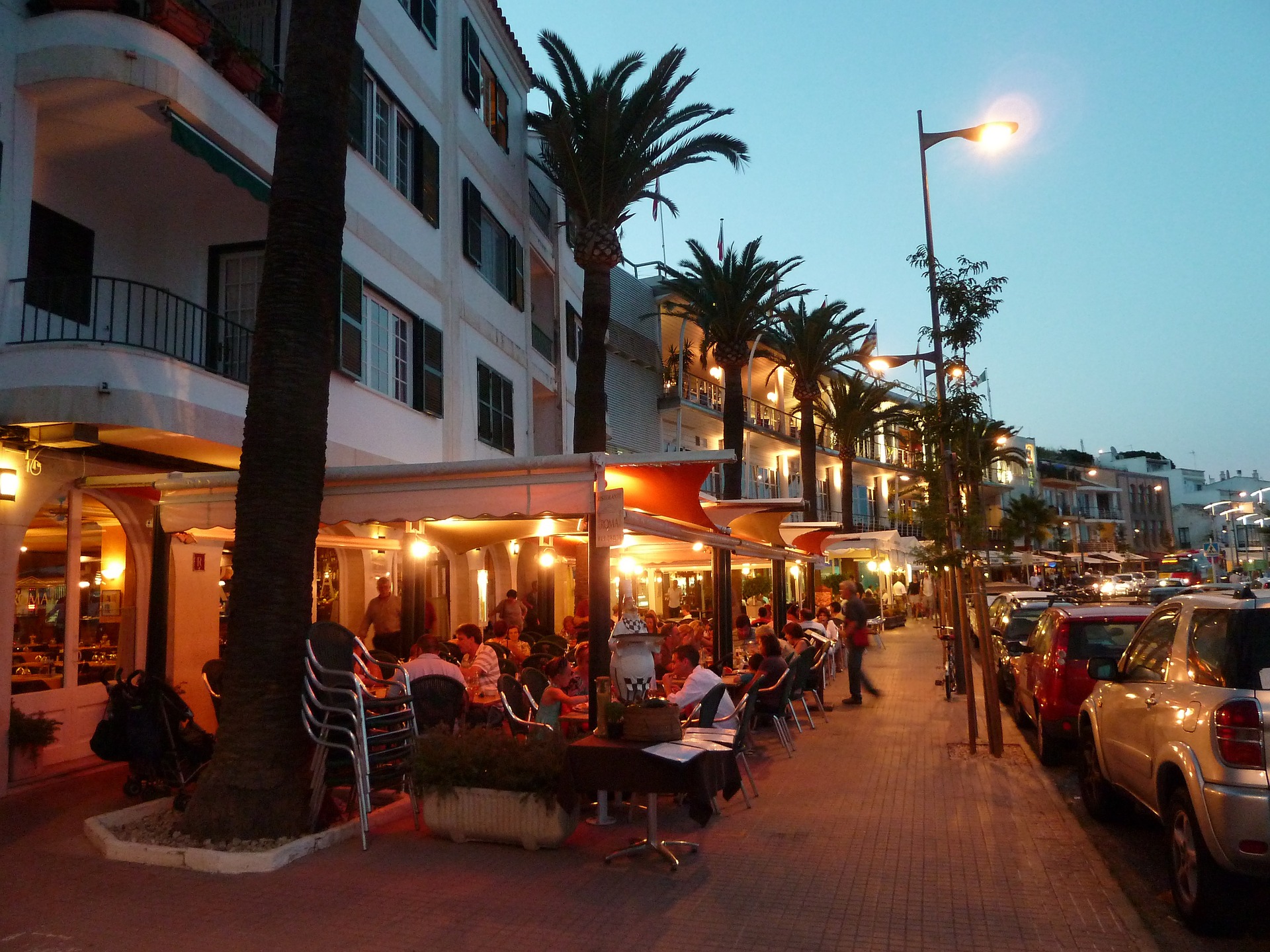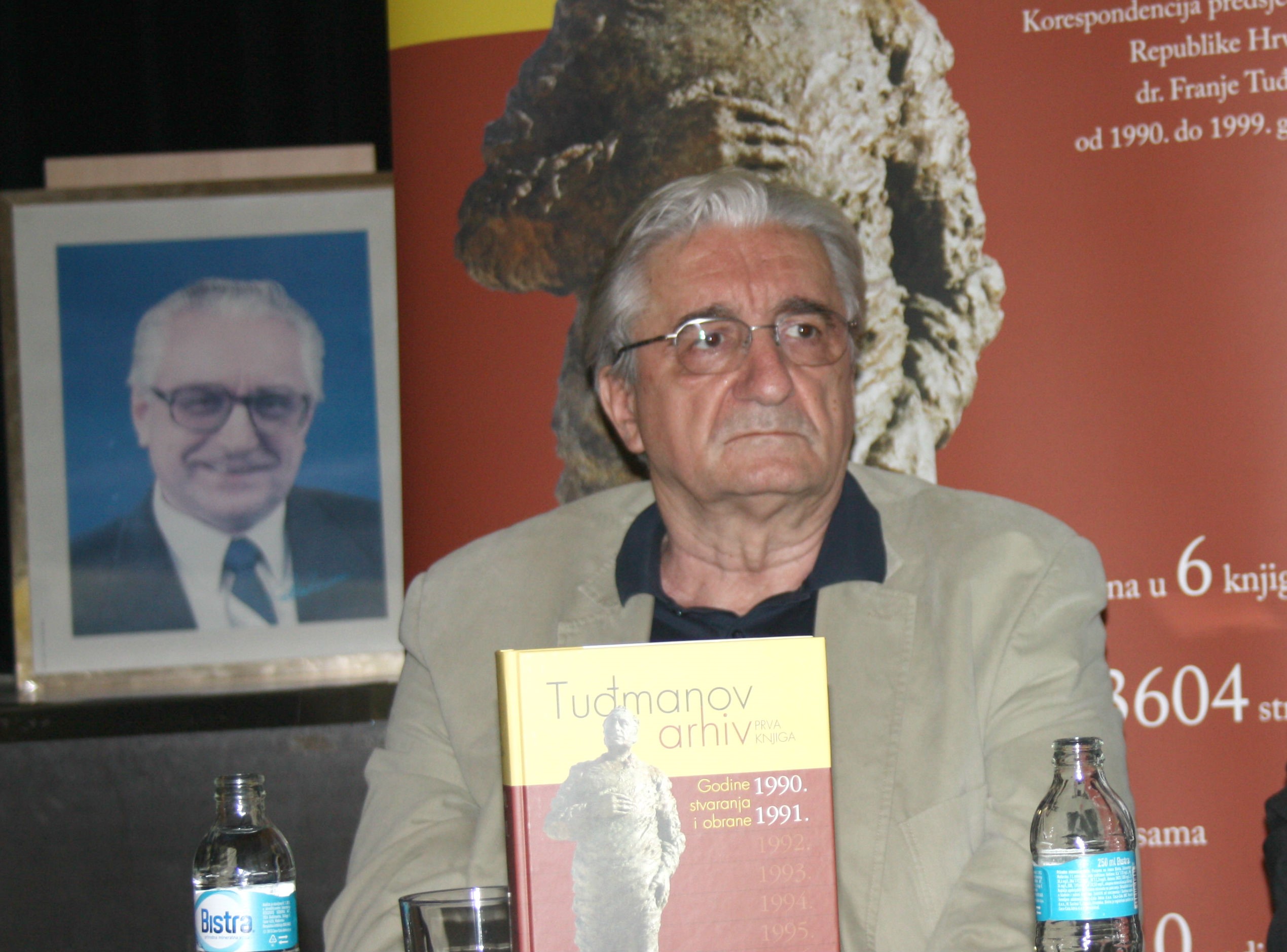Capak: Number of Infectsions Increasing, Third Vaccine Dose Matter of Time
ZAGREB, 3 Sept 2021 - The director of the Croatian Institute for Public Health, Krunoslav Capak, warned on Friday that the number of new coronavirus cases in Croatia is increasing and their share in those tested is 8.4%, so it is only a matter of time when a third dose of a vaccination will begin.
"We don't know the precise date, however we will start with a third dose of a vaccine soon. People who are threatened the most will be the first to receive the third dose, Capak told a press conference.
Immunity increases markedly after the third dose
Croatia has 31% more people infected this week than last, with the lowest incidence rate recorded in Istria and the highest in Split-Dalmatia County.
Eight European countries have already introduced the third dose of the vaccine while 13, including Croatia, are still mulling over the idea.
Capak spoke about the Israeli experience with the third dose, after two million people older than 60 had been vaccinated. An Israeli study shows that the risk of infection was 11 times less likely and that their immunity increased significantly, and there weren't any side-effects like those recorded after the first and second dose, said Capak.
An increasing number of hospitalised children
The director of the Dr. Fran Mihaljević Hospital for Infectious Diseases, Alemka Markotić, said that Pfizer had already submitted documents related to the effectiveness and harmlessness of the third dose to the European Medicines Agency.
Health Minister Vili Beroš sent a message to anti-vaxxers saying that their decision not to be vaccinated was legitimate, but that spreading misinformation was taking us a step backwards.
He warned that in this fourth wave of the epidemic 108 children have been hospitalised so far, which is a certain increase.
For more news, CLICK HERE.
Croatia Logs 596 COVID-19 Cases, Two Deaths
ZAGREB, 27 Aug 2021 - In the past 24 hours, 596 new coronavirus cases and two COVID-19-related deaths have been registered in Croatia, the national COVID-19 crisis management team said on Friday, noting that 9,532 tests were conducted in that period.
There are 372 hospitalised patients, including 47 on ventilators.
The number of active cases stands at 3,353 and 7,295 persons are self-isolating.
Since 25 February 2020, when the first case of the disease was reported in Croatia, 372,219 people have been infected, of whom 8,318 have died.
A total of 360,548 people have recovered, including 494 in the last 24 hours.
To date, 2,510,859 people have been tested, including 9,532 in the last 24 hours.
To date, 3,244,822 vaccine doses have been administered, with 42.20% of the population having been vaccinated, including 50.69% of adults.
One dose has been administered to 1,712,434 persons while 1,599,278 persons have been fully vaccinated -- 1,532,388 have received both doses and 66,890 have received the single-dose Janssen vaccine -- which is 47.40% of the adult population.
For more news, CLICK HERE.
PM: Marked Rise in New COVID Cases, Restrictions to Be Introduced in Adriatic Region
ZAGREB, 22 July 2021 - Prime Minister Andrej Plenković said on Thursday that after a period of decrease and stagnation, the past week saw a marked increase in the number of new cases of the coronavirus infection, and he called for caution, adding that additional restrictions are being introduced in the Adriatic region.
The largest number of cases were registered in four Dalmatian counties which are all tourist destinations, so the national COVID-19 crisis management team will introduce additional epidemiological measures in that area to limit the possibility of the infection spreading, to control events with a greater number of participants, to avoid risks and to make tourist season possible, Plenković announced at his cabinet's session.
He added that the government took into account the health aspect, but also the tourist, economic, financial, and social aspects.
As for vaccination, he said that as of yesterday Croatia passed the number of 1.6 million people vaccinated with the first dose against coronavirus.
"That's very good, we're getting closer to the number of 48% of the vaccinated adult population. I still call on everyone, especially those in two minds or in fear, to get informed, to have confidence in the profession, medicine, all those who want to protect as many citizens as possible, and to decide to get vaccinated themselves," the prime minister said.
94% of hospitalized COVID-19 patients not vaccinated against this infection
He said that there was "an abundance" of vaccines and recalled last week's decision to enable all Croatian citizens without mandatory health insurance and Croatia from all over the world, as well as all other foreign nationals, to get vaccinated, so, for instance, someone from Mostar going on holiday to Makarska can get vaccinated for free there.
"I would like us to contribute to the protection against COVID beyond our borders also in that way because this is a global game, and with our action, we want to make that contribution," Plenković said, inviting people to use this opportunity.
He also underlined that 94% of hospitalized COVID patients had not been fully inoculated against that infection.
Ministers: Numbers growing, a new package of measures to be introduced
Health Minister Vili Beroš said at the government session that the number of COVID cases was unfortunately rising and that the epidemiological situation in some counties called for caution, while Interior Minister Davor Božinović announced the introduction of a new set of measures.
In the two-week period from 5 to 18 July, Zadar, Split-Dalmatia, Primorje-Gorski Kotar counties and the City of Zagreb registered the largest number of new cases, Beroš said.
"The numbers are unfortunately still growing, the increase in positive cases over the past seven days is 46.1%, the situation in some counties calls for caution, so it requires increased monitoring and caution," said Beroš, warning of the easy spread of the new variant of the virus and of several smaller hotspots.
He said the situation in hospitals was generally favorable, with the exception of some hospitals in Dalmatia, which are recording a slight increase in the number of hospitalized patients. There are currently 122 patients in hospitals, 13 of whom are on ventilators, he said, reiterating that 94% of hospitalized patients have not been vaccinated against COVID-19.
A total of 2.9 million doses have been administered, and the minister announced pharmacies would join the vaccination process and issue COVID certificates.
On the 514th day since the outbreak of coronavirus in Croatia, 179 new cases have been registered, the percentage of positive tests over the past 24 hours is 4.56%, and Croatia's 14-day incidence rate per 100,000 inhabitants is 35.9, the health minister said.
For more about politics in Croatia, follow TCN's dedicated page.
Croatia Reports 87 New Coronavirus Cases, No Deaths in Last 24 Hours
ZAGREB, 9 July 2021- Croatia has registered 87 new coronavirus cases and no COVID-related deaths in the last 24 hours, the national coronavirus crisis management team said on Friday.
The number of active cases currently stands at 612. Among them are 115 persons who are receiving hospital treatment, including four who are placed on ventilators. A total of 3,353 people are in self-isolation.
To date, 2,769,141 doses of vaccine against COVID-19 have been administered, with 1,534,856 people having received at least one dose and 1,234,285 having been inoculated with both doses.
A total of 2,184,648 people have been tested for the novel virus to date, including 3,678 in the last 24 hours.
Since 25 February 2020, when the first case was confirmed in the country, 360,680 people have been registered as having contracted the coronavirus, of whom 8,226 have died and 351,842 have recovered, including 99 in the last 24 hours.
For more news, CLICK HERE.
Croatia's Coronavirus Update: 134 New Cases, 13 Deaths, 204 Recoveries
ZAGREB, 11 June 2021 - In the last 24 hours, of 4,083 tests performed for coronavirus, 3.3%, that is 134, have returned as positive, and there have been 13 more COVID-related deaths increasing the death toll to 8,123, the Croatian COVID-19 crisis management team reported on Friday.
Currently, there are 1,207 active cases in Croatia, including 456 hospitalised patients of whom 44 are placed on ventilators.
Since the first registered case of this infectious disease in the country on 25 February 2020, 2.07 million tests have been performed, showing that 358,379 people have contracted this novel virus, and of them 349,049 have so far recovered, including 204 recoveries in the last 24 hours.
So far, more than 1.38 million people have received at least one shot of the COVID vaccine, and of them 656,325 have fully been vaccinated.
For all you need to know about coronavirus specific to Croatia, including travel, border and quarantine rules, as well as the locations of vaccination points and testing centres across the country, make sure to bookmark our dedicated COVID-19 section and select your preferred language.
Index: Cafe Terraces Open In Two Weeks If Numbers Stay Low
February 17, 2021 – Indoor sports return and cafe terraces open on Monday 1st March if infection numbers remain low, learns Croatian media outlet Index.
By the time spring arrives, Croatian coffee lovers should be back enjoying their drinks outside their favourite cafe bar. Cafe terraces open on Monday 1st March 2021 if Coronavirus infection numbers remain low and stay on their current trajectory, according to Croatia media outlet Index.
Indoor sports will also return on the same date, with the same stipulation that infection numbers remain low. Having cafe terraces open again cannot come too soon for frustrated business owners. At the moment, they are only permitted to serve coffee to go. According to Index, from on Monday 1st March 2021, cafe terraces open and people will no longer need to congregate on the street outside, in parks or on benches to enjoy their drinks.
“Measures should be further relaxed throughout Croatia as of March 1, including the much-anticipated opening of cafe terraces,” says the portal. Cafe terraces open and other relaxed measures depend on the prerequisite of figures remaining at the level they are at now. “The share of newly infected in the number tested in recent days is below five percent,” Index adds.
Headquarters and the government had already announced that the next round of concessions could be expected in early March. Cafe terraces open in Croatia from March 1st 2021, if Coronavirus numbers remain low, say media outlet Index
Cafe terraces open in Croatia from March 1st 2021, if Coronavirus numbers remain low, say media outlet Index
Croatian cafe terraces open, the interior of cafes and restaurants remain closed
“As we find out, the terraces of cafes and restaurants will definitely open on March 1,” wrote Index. “However, according to information from a source close to the Headquarters, the closed (interior) parts of cafes and restaurants will not be opened. (This) is realistically expected in April at the earliest.”
“Once cafe terraces open, guests will most likely not be able to enter the interiors of cafes and restaurants, except perhaps for the use of toilets, to prevent indoor parts of cafes and restaurants from being used and guests being served there. Closed spaces are still considered by headquarters (to be) an extremely high risk when it comes to the spread of coronavirus.”
Further relaxation of Coronavirus measures: Indoor sports to return
According to Index, although the first information received said that from March 1, only indoor sports for children would be opened, the portal has discovered that instead all indoor sports should be opened, with prescribed epidemiological measures. They remind that, according to current measures, only gyms, swimming pools and contactless individual ball sports are allowed.
Public gatherings / marketplaces / fairs
“There should be concessions when it comes to fairs, but it is not yet completely clear under what conditions,” says the portal. Like supermarkets, open-air and indoor markets are currently permitted to operate. The newly relaxed measures will pertain to similar, but more irregular events at which arts & crafts, books and other goods are on display for sale. The portal say that the vending and consumption of food – which is traditional at such events – will likely not be permitted for now.
“The headquarters is inclined to open fairs where products are sold or exhibited, but the consumption of food and drinks might be limited to prevent excessive gatherings and socializing,” they say.
Relaxation of Coronavirus measures pertaining to private gatherings
“The allowed number of people at various gatherings should not change significantly, only minor corrections are possible,” claims the portal, adding that the current ban on the gathering of people from more than two households may instead be downgraded to a recommendation. The portal reminds that this measure has not been strictly enforced in any way before.
"To give way on March 1, the numbers have to stay at about the level they are now. But the pressure is great - no one wants to keep something closed that should not be kept closed. Most of it is already open, so there remains a narrow circle of what can still be given,” a source close to the Headquarters is quoted as telling Index.
Friction between regional and national authorities over easing of Covid-19 measures
Even if cafe terrace open on March 1st, Index concludes their article by reminding that a disparity between regional and national authorities is still causing some friction. The friction between two north-westerly regions of the country and national headquarters is specifically addressed.
“The Headquarters believes that the announcement of the Istrian Headquarters that they will open the terraces of cafes and restaurants on March 1 was very incorrect. They (national headquarters) say that this opening is planned at the level of the whole of Croatia anyway.”
“However, the decision of the Primorje-Gorski Kotar headquarters, which postponed the opening of bookmakers and casinos in that county, is perhaps even more critically commented on. The government states that the opening of bookmakers (betting shops) and casinos is a purely financial decision and ironically comments that if the Primorje-Gorski Kotar County wants to leave these facilities closed, they should (themselves) cover the costs that will be incurred,” says the Index article.
Index claims that these moves from Istria and Rijeka (Primorje-Gorski Kotar) are regarded in the National Headquarters and the government as politicking and that they are connected with the upcoming local elections.
For the latest travel info, bookmark our main travel info article, which is updated daily.
Read the Croatian Travel Update in your language - now available in 24 languages
Miroslav Tudman, son of Franjo Tudman, has died from Coronavirus
February 1, 2021 – Miroslav Tudman, the first child of Franjo Tudman, died in Zagreb from complications caused by Coronavirus. A scientist and educator who followed a route into politics, he bore a striking resemblance to his father, the first President of Croatia
Miroslav Tudjman, HDZ member of parliament and son of Franjo Tudman, the first President of Croatia, died in the evening of Sunday 31 January 2021 in Zagreb. He was 75 years old.
Miroslav Tudjman had been hospitalized in Zagreb at the beginning of December due to complications caused by Coronavirus. He had been placed on a respirator. He sadly lost his fight for life at the Dr. Fran Mihaljevic Clinic for Infectious Diseases, Zagreb.
Born in Belgrade in 1946, the son of Franjo Tudman and his first wife Ankica Zumbar, Miroslav Tudman moved to Zagreb in 1961. He graduated from the Faculty of Philosophy at the University of Zagreb in 1970 and later became part of the faculty, founding its Institute for Information Studies in 1989. Miroslav Tudman © HDZ
Miroslav Tudman © HDZ
He took part in the Croatian War of Independence and in 1992 Miroslav Tudman became the head of the Centre for Strategic Research. He took up the role as the deputy head of the National Security Office before founding and leading the first Croatian Intelligence Agency (Hrvatska izvještajna služba, HIS). In 1998, Miroslav Tudman became a tenured professor at the Faculty of Philosophy where he had studied.
Miroslav Tudman had dallied with politics since before the war, but it was only after the passing of his father – who died while in office – that they became a more consuming affair for him. He flitted between running as an independent candidate, within fringe parties and as a member of HDZ, the party to which his father belonged. His longest duration with any party was from 2011 and 2021, during which he was a member of HDZ.
At the time of his death, he was a member of the Croatian parliament, head of the Parliamentary Delegation to the NATO Parliamentary Assembly, a member of the Committee on Defence, Internal Policy and National Security, War Veterans and Inter-Parliamentary Cooperation.
Bearing a very close resemblance to his father, Miroslav Tudman was named after Croatian writer Miroslav Krleža who his father adored at the time of his firstborn child.
Prime Minister Andrej Plenković said that he received the news of Miroslav Tudman's death with sadness.
"It is with great sadness that I received the news of the departure of Prof. Miroslav Tudman, PhD, a dear colleague, friend and member of the Croatian Parliament, son of the first Croatian President Franjo Tudman, a prominent politician and a scientist dedicated to protecting national interests," he wrote on Twitter. "In these sad and painful moments, for the Tudman family, I express my sincere condolences and sympathy, on behalf of the government and myself."
For the latest travel info, bookmark our main travel info article, which is updated daily.
Read the Croatian Travel Update in your language - now available in 24 languages
Capak: Twofold Increase in New Infections Recorded Last Week
ZAGREB, Dec, 2020- Croatian Public Health Institute (HZJZ) head Krunoslav Capak said on Monday that Croatia last week registered a twofold increase in new COVID-19 cases and that the country's epidemiological situation was the worst in the European Union.
According to Capak, from December 7 to 13, Croatia registered a 7.5% increase in the number of new infections compared to a 3.7% increase in the week before that.
The incidence rate in the entire Croatia is high, but the differences between counties are considerable, with Medjimurje County reporting the highest and Dubrovnik-Neretva County the lowest incidence rate.
We are in the last place in the EU when it comes to the number of new cases per 100,000 inhabitants in the last 14 days, Capak said. As for the mortality rate, we are in the 16th place of the 27 EU countries, with 628.5 deaths per a million inhabitants.
Capak also said that today people in self-isolation account for 40% of the new infections.
"This shows that the system of searching for contact has not fallen apart despite operating with difficulties due to a large number of new infections," he added.
Vaccination programme by end of week
Asked about the number of health workers that want to be vaccinated, Capak confirmed the unofficial data that slightly more than 50% of health workers want to, adding that they are still collecting data on that.
He stressed that the vaccination campaign had already started, and by the end of the week the government would adopt a vaccination programme although it was not yet known when the vaccines would arrive and be distributed.
In the coming days, science conferences on vaccination will be organised, and there will also be a media campaign.
Asked about people who will not be able to get vaccinated, the head of Zagreb's Dr Fran Mihaljevic hospital for infectious diseases, Alemka Markotic, said that that would be apply to people allergic to a vaccine ingredient.
She added that they expected there would be very few such cases and that people should get informed on their own about their allergic reactions to medicines.
Croatia reports 1,472 new coronavirus cases, 65 deaths in last 24 hours
Croatia has registered 1,472 new coronavirus cases and 65 infection-related deaths in the last 24 hours, the national coronavirus response team reported on Monday morning.
A total of 2,857 infected people are receiving hospital treatment for COVID-19 and 284 of them are on ventilators. Currently, there are 22,769 active cases in the country and 54,042 people are in self-isolation.
Since February 25, when the first case was confirmed in the country, 177,358 people have been infected with the novel virus, 2,705 of them have died and 151,884 have recovered, including 3,673 in the last 24 hours.
Chief Epidemiologist: New Data Gives Hope in Stagnation of New Cases
ZAGREB, November 9, 2020 - Croatia's chief epidemiologist Krunoslav Capak said on Monday the latest data on the rise of coronavirus cases in the country gave one hope that the incidence was stagnating.
In three weeks up to November 2, we had a 90% to 100% change in the weekly numbers of new cases, he told a press conference of the national COVID-19 response team. "In one week, our numbers increased 100%, whereas now we have a 4.2% increase. This gives us hope that the increase is stagnating and that the situation will improve."
Croatia 13th in Europe in terms of mortality
"We have a 14-day incidence of 750.4 per 100,000 inhabitants, which is a high incidence, ranking us 22nd out of 27 European countries. The mortality rate since the start of the epidemic is 184.5 per million inhabitants, which puts us in 13th place in the EU, in the middle of the ranking, which is good," said Capak.
"We hope the numbers will stop rising and that the curve will even out. The fact that the number is stagnating shouldn't encourage us not to adhere to the measures, because strictly adhering to the prescribed epidemiological measures is key for achieving stagnation," the head of the Croatian Institute of Public Health added.
In the past 24 hours Croatia registered 1,529 new coronavirus cases and 38 deaths. The number of active cases is 14,952, including 1,451 hospitalised patients, of whom 142 are on ventilators.
Since February 25, when the virus was first registered in Croatia, 68,776 persons have caught it, including 832 who have died, and 53,002 have recovered, including 2,227 in the past 24 hours. To date 564,686 people have been tested for the virus, including 5,670 in the past 24 hours.
Currently 28,122 persons are self-isolating.
Situation best in Istria County, worst in Varazdin and Medjimurje
Capak said the pandemic situation remained the best in Istria County, despite plenty of cases recently, while being worst in Varazdin and Medjimurje counties.
Croatia has not reached the PCR testing limit and most countries are starting to use high antigen tests, which are not totally accurate but take 10 minutes.
"Those tests are now being used only for symptomatic patients and we are annulling false negatives by sending all those with false negatives for PCR. There is no strategy which could endanger the detection of new cases," said Capak.
As for the high number of deaths, he said it was due to the higher numbers of new infections.
Speaking of scientist Ivan Djikic's estimate of 1,500 dead by the end of this month, Capak said he was surprised because he did not know if Djikic meant the total death toll or the monthly number. "I said I thought the number was exaggerated. If the number of infections continues to stagnate, the number of the dead will decrease too."
Speaking of a drug shortage for cancer patients, Health Minister Vili Beros said HRK 1.8 billion would be paid to wholesalers on Wednesday and that it should suffice for ensuring drugs for the gravest patients.
He condemned "the inhumane act of switching off power in KB Dubrava" hospital, which is being investigated by the police, saying the arrival of a new leadership was expected to improve the situation in the Zagreb hospital.
Interior Minister Davor Bozinovic said wearing masks was mandatory there where it was not possible to socially distance and that more and more people were behaving responsibly, wearing them both indoors and outdoors.
"You have countries which have imposed a curfew, a lockdown, and you see what is happening. The problem with those strict measures is that, at the moment, no one can say how long they will last. Besides all the epidemiological reasons and demands, we must take into account not only the economy, but also the sentiment in society, the nation's mental state. Where there is no other way, there are sanctions and they will be applied," he said.
Croatia Reports 261 New COVID Cases, Seven Fatalities
ZAGREB, September 12, 2020 - A total of 261 new cases of the coronavirus infection have been reported in the past 24 hours, as have seven fatalities, and there are 2,429 active cases of the infection, the national COVID-19 response team said on Saturday.
Among the active cases are 313 patients who are being treated in hospitals, including 24 who are on ventilators.
With the seven new fatalities, the COVID-19 death toll stands at 218.
Since February 25, when the first case of COVID-19 was registered in Croatia, 13,368 people have contracted the disease and of them, 10,721 have recovered.
Currently 8,955 people are self-isolating.
To date, 216,495 people have been tested for the virus, including 5,690 in the last 24 hours.
For the latest travel info, bookmark our main travel info article, which is updated daily.
Read the Croatian Travel Update in your language - now available in 24 languages


